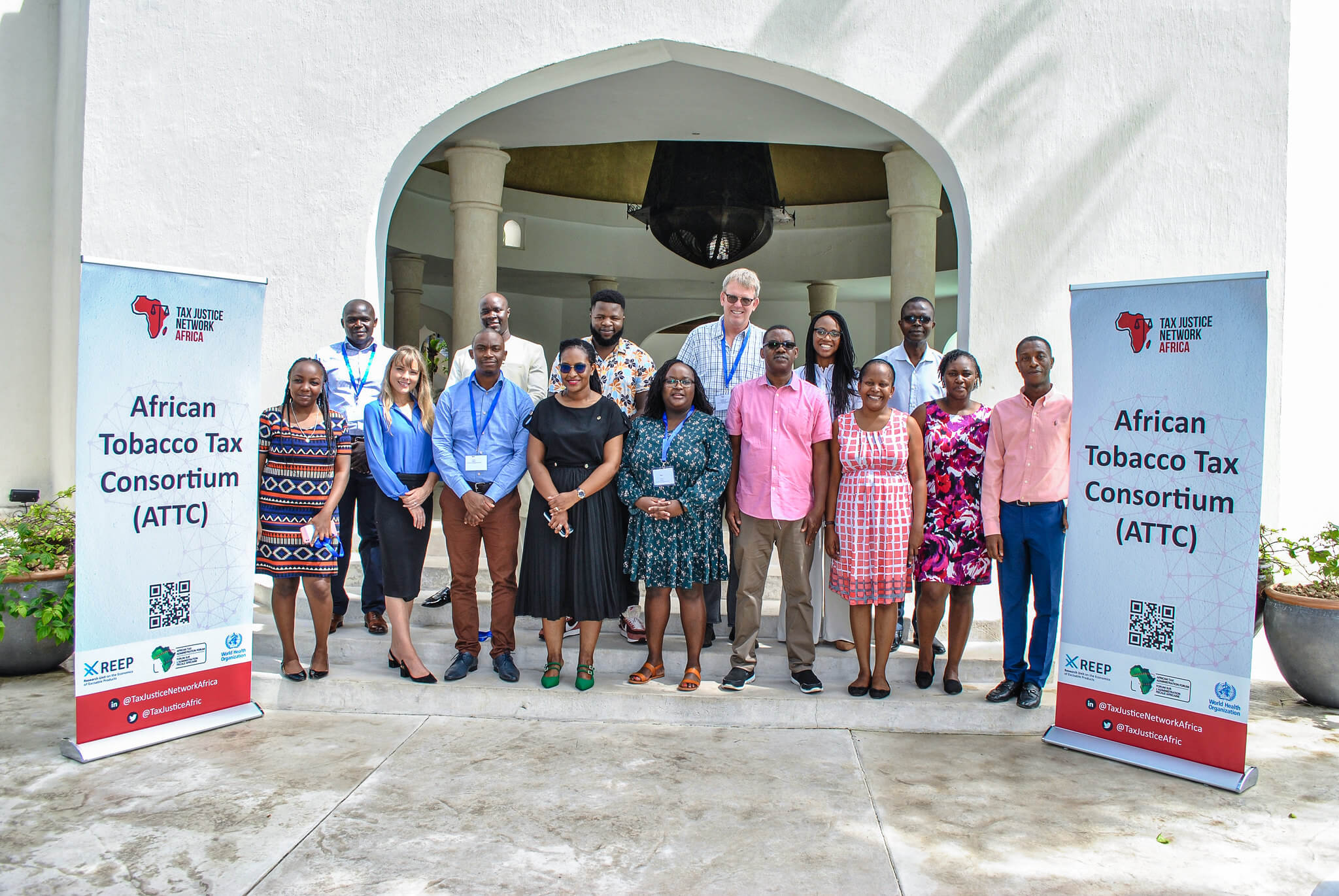Date

The African Tobacco Tax Consortium has ramped up its quest for progressive tobacco taxation systems in Africa by developing a road map that will guide the consortium's activities. The consortium, comprising of TJNA, the World Health Organization (WHO), the Economics of Excisable Products Research Unit (REEP) of the University of Cape Town and the African Tax Administration Forum (ATAF), have also agreed to further collaborate to drive tax reforms in the tobacco industry to increase revenue collection on tobacco products and improve health in Africa using tax models,TaXSiM and TETSiM.
These commitments were made during the inaugural consortium strategy meeting in Diani, Kenya that brought together representatives from partner institutions. The consortium also agreed to create a unified message for African governments, align communications with revenue authorities and civil society organizations, and agreed to align on the strategic timing of the delivery of messaging on tobacco tax reforms.
In her opening remarks, Ms. Chenai Mukumba, Acting Executive Director at Tax Justice Network Africa noted that the tax is the most sustainable source of financing for revenue and plays a big role in the economy. She also added that the tobacco sector does not receive a lot of consideration in taxation, and that there is a need to leverage the different strengths of various institutions to change this in the continent.
"We must actively leverage our advantages in various spaces to advocate for change in the tobacco sector. I firmly believe that by joining forces, we can deliver a synchronized message to reform Africa's tobacco tax strategy," she stated.
TJNA continues to collaborate with civil society organizations and inter-governmental organizations to expand its efforts to reduce tobacco consumption and generate revenue for African governments under the Tobacco Tax Advocacy in Africa (TTAA) project. The project aims to strengthen advocacy towards tobacco tax policy as an effective means of capturing significant revenue, reducing the impact of tobacco's cost in terms of healthcare and protecting public health.
It additionally aims to change the perspective that multinational tobacco companies are legitimate stakeholders in policy discussions, given the harm they cause to the country and the deceptive tactics they use to avoid taxes and shift revenue overseas.
The consortium further agreed to drive reforms in the tobacco sector through capacity building, technical assistance, evidence-based research, coalition building and policy advocacy. WHO, ATAF and UCT-REEP have worked in different capacities to promote simple, fair, and progressive tobacco tax systems in Africa. The meeting provided an avenue for them to establish a strategy and roadmap to engage with governments, with most of the efforts being focused on Zambia, Kenya, The Democratic Republic of Congo (DRC), and Senegal as the Starting points for these conversations.
This meeting highlighted the crucial role of experts from civil society organizations, inter-governmental organizations, and academic institutions in the advocacy for tax reforms in the tobacco sector to improve health outcomes and the tax burden.
For more information about the African Tobacco Tax Consortium please contact Rodgers Kidiya at rkidiya@taxjusticeafrica.net.